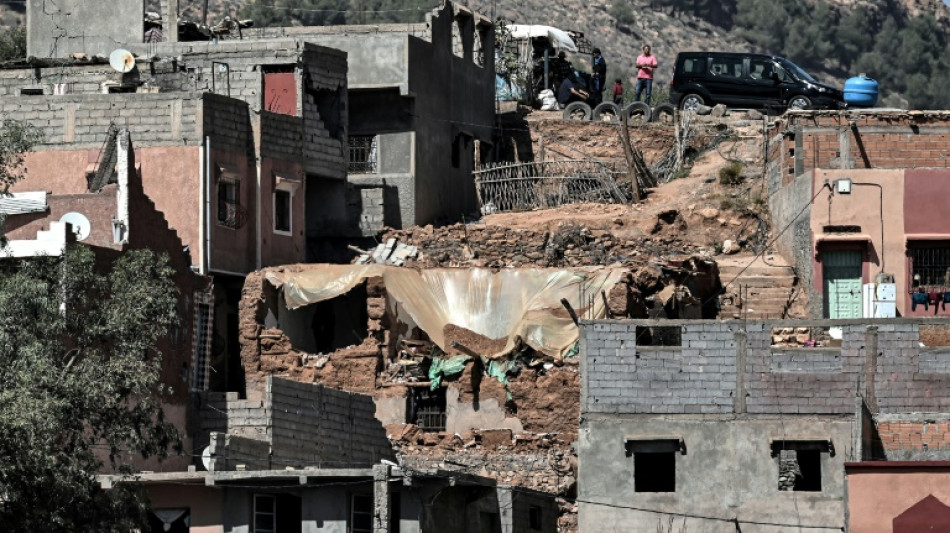
-
 Scandic Trust Group strengthens sales network with First Idea Consultant
Scandic Trust Group strengthens sales network with First Idea Consultant
-
UN warns 'intensified hostilities' ahead in Sudan despite RSF backing truce plan
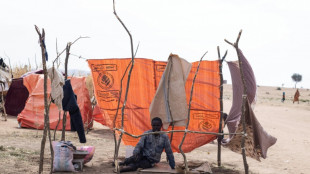
-
 Seven hospitalized after suspicious package opened at US base
Seven hospitalized after suspicious package opened at US base
-
Guardiola says 'numbers are insane' as he reaches 1,000 games in charge

-
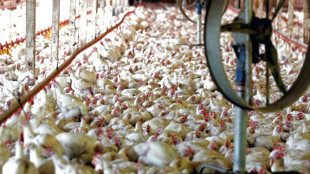 Brazil welcomes China lift of ban on poultry imports
Brazil welcomes China lift of ban on poultry imports
-
Scotland captain Tuipulotu bids for landmark win over All Blacks

-
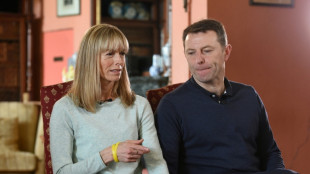 Woman convicted in UK of harassing Maddie McCann's parents
Woman convicted in UK of harassing Maddie McCann's parents
-
Tanzania charges more than 100 with treason over election protests
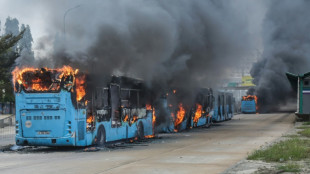
-
 Nexperia chip exports resuming: German auto supplier
Nexperia chip exports resuming: German auto supplier
-
Genge warns England to beware 'nasty' Fiji at Twickenham
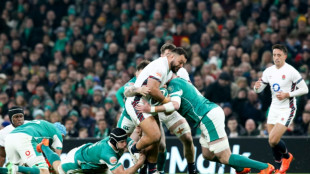
-
 Stocks fall on renewed AI bubble fears
Stocks fall on renewed AI bubble fears
-
UK grandmother on Indonesia death row arrives back in London
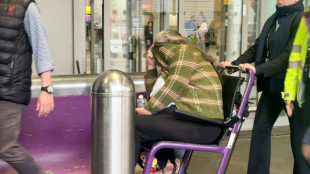
-
 Spanish star Rosalia reaches for divine in new album
Spanish star Rosalia reaches for divine in new album
-
Portugal's Mendes out injured as Neves returns for World Cup qualifiers
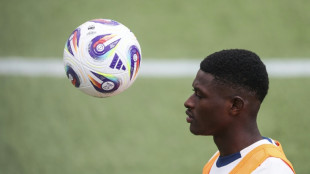
-
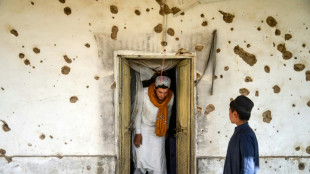 Afghan-Pakistan peace talks push ahead after border clashes
Afghan-Pakistan peace talks push ahead after border clashes
-
Fleetwood in tie for lead at halfway stage in Abu Dhabi
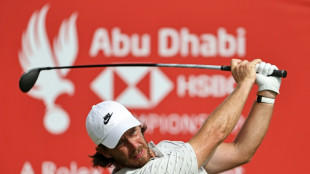
-
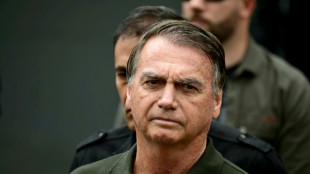 Brazil court starts hearing Bolsonaro appeal
Brazil court starts hearing Bolsonaro appeal
-
Serbia fast-tracks army HQ demolition for Trump family hotel
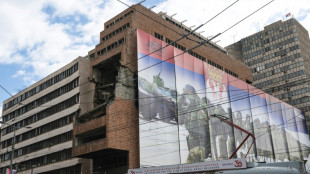
-
 Ireland captain Doris 'mentally stronger' after long break
Ireland captain Doris 'mentally stronger' after long break
-
MSF accuses powerful nations of weakening S.Africa's G20 health text
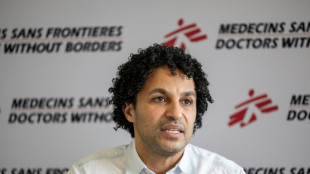
-
 Maresca defends Chelsea rotation policy after Rooney criticism
Maresca defends Chelsea rotation policy after Rooney criticism
-
Hundreds of flights cut across US in government paralysis
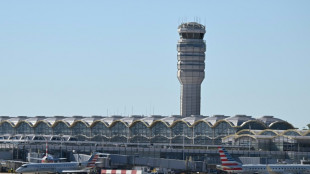
-
 Xhaka 'made me a better coach', says Arsenal boss Arteta
Xhaka 'made me a better coach', says Arsenal boss Arteta
-
Central Nigerian town rebuilds religious trust in shadow of Trump's threat
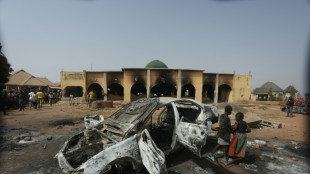
-
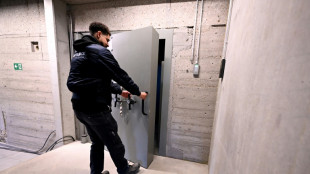 Inside Germany's rare earth treasure chest
Inside Germany's rare earth treasure chest
-
Former jihadist Syrian leader makes unprecedented White House visit
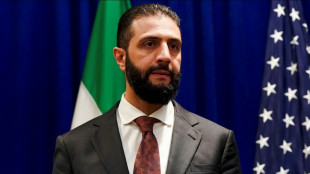
-
 Kagiyama takes NHK lead in Japan to kick-start Olympic season
Kagiyama takes NHK lead in Japan to kick-start Olympic season
-
Ikea profits drop on lower prices, tariff costs

-
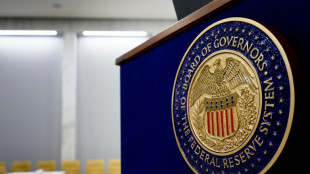 European, Asian stocks decline after Wall Street slide
European, Asian stocks decline after Wall Street slide
-
Tuchel brings 'immense' Bellingham and Foden back into England fold

-
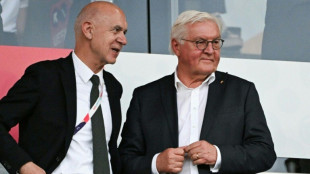 German FA extends with president Neuendorf until 2029
German FA extends with president Neuendorf until 2029
-
No end to Sudan fighting despite RSF paramilitaries backing truce plan
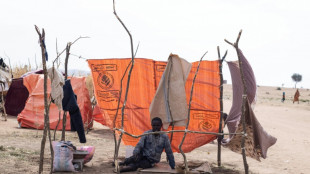
-
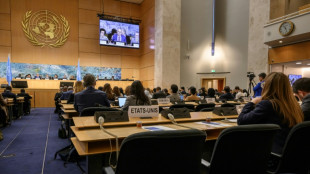 US officials, NGOs cry foul as Washington snubs UN rights review
US officials, NGOs cry foul as Washington snubs UN rights review
-
Injured teen medal hope Tabanelli risks missing home Winter Olympics
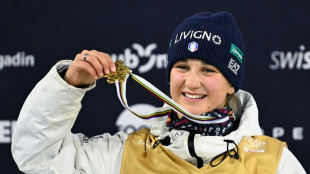
-
 Bellingham, Foden recalled to England squad for World Cup qualifiers
Bellingham, Foden recalled to England squad for World Cup qualifiers
-
Tanzania rights group condemns 'reprisal killings' of civilians
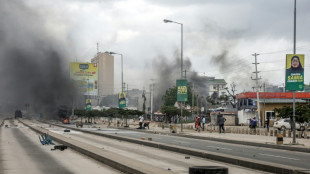
-
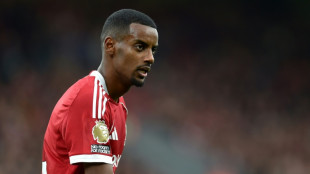 Slot urges patience as Isak returns to training with Liverpool
Slot urges patience as Isak returns to training with Liverpool
-
Rees-Zammit set for Wales return with bench role against Argentina

-
 China's new aircraft carrier enters service in key move to modernise fleet
China's new aircraft carrier enters service in key move to modernise fleet
-
Operation Cloudburst: Dutch train for 'water bomb' floods
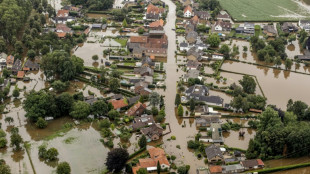
-
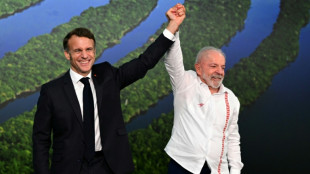 Leaders turn up the heat on fossil fuels at Amazon climate summit
Leaders turn up the heat on fossil fuels at Amazon climate summit
-
US travel woes mount as govt shutdown prompts flight cuts

-
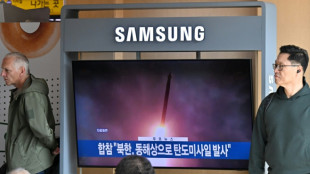 North Korea fires unidentified ballistic missile: Seoul military
North Korea fires unidentified ballistic missile: Seoul military
-
West Bank's ancient olive tree a 'symbol of Palestinian endurance'
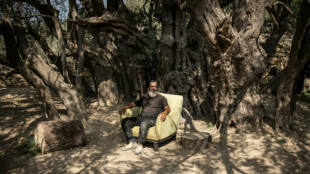
-
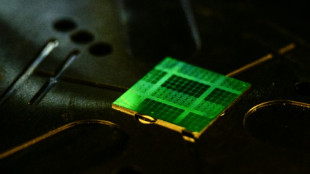 Global tech tensions overshadow Web Summit's AI and robots
Global tech tensions overshadow Web Summit's AI and robots
-
Green shines as Suns thump Clippers 115-102

-
 Japan to screen #MeToo film months after Oscar nomination
Japan to screen #MeToo film months after Oscar nomination
-
Erasmus relishing 'brutal' France re-match on Paris return
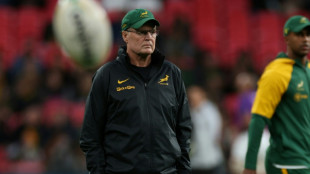
-
 Rejuvenated Vlahovic taking the reins for Juve ahead of Turin derby
Rejuvenated Vlahovic taking the reins for Juve ahead of Turin derby
-
'Well-oiled' Leipzig humming along in Bayern's slipstream


'Everything comes back': Morocco quake leaves mental scars
When Khadija Temera, a survivor of Morocco's devastating earthquake, was sent to a psychiatrist on Tuesday, she was just one of a hundred newly traumatised patients who would be seen within 24 hours.
The powerful quake last Friday killed more than 2,900 people, most of them in remote villages of the High Atlas Mountains.
Beyond the physical devastation, soldiers and aid workers say it is becoming increasing clear that many of the survivors are facing severe mental suffering.
"The most important thing is that we are alive," Temera says, her henna-stained fingers fiddling with a piece of paper, her eyes swollen with tears.
But now she wants to "heal her heart", and on Tuesday she had her first consultation with a psychiatrist, seeking balm for the trauma inflicted by the quake.
She had first gone to see a regular doctor for hypertension.
But Moroccan troops in the area quickly referred her to the psychiatrist, who said he had seen around a hundred patients since the previous day out of the 500 who came to the field hospital in Asni, around 90 kilometres (55 miles) south of the tourist hub of Marrakesh.
Flashbacks from the fateful day continue to haunt Temera: of stairs collapsing and trapping her and the nine members of her family before they could be rescued.
"I've been awake ever since, I can't fall asleep -- as soon as I lie down everything comes back," said the 68-year-old from the village of Lareb.
- 'Acute stress' -
Next to her on a bench, a mute woman was also waiting for a consultation, her hands clasped across her chest and breathing heavily.
She has lost both her children.
After her comes the turn of a man in his thirties, his eyes red from crying.
Of the thousands injured in the powerful earthquake, "some were not only wounded and bruised in their flesh, they were also often 'bereaved', having lost their homes", said Adil Akanour, the only psychiatrist at the makeshift hospital, which was opened to the press on Tuesday.
Meanwhile villagers in more isolated hamlets, which have remained inaccessible, told AFP of their isolation and the absence of aid.
Survivors find themselves in a "state of acute stress with symptoms, often physical at first", Akanour said, adding that dizziness, palpitations, headaches and abdominal pain can be symptoms that "hide" a psychological problem.
According to the World Health Organization, nearly everyone who experiences such an emergency will suffer some psychological problems which, in most cases, will fade with time.
- 'There's nothing left' -
The separation of families, insecurity, loss of livelihoods and disruption of social contacts are all potential psychological problems, according to the UN organisation, which recommends urgent care to prevent the development of post-traumatic stress disorders.
The 6.8-magnitude quake that struck on September 8 was the most powerful ever recorded in the kingdom, with the provisional toll of 2,900 people dead likely to rise.
Entire villages were swallowed up, and with them the lives of hundreds of modest families.
Thousands of people were left homeless, the majority now living alone in makeshift tents or, for a few such as Mouhamed El Makhconi, sheltering in genuine windproof tents provided by the interior ministry.
"I was the only one providing for my family," the 60-year old said with a resigned, toothless smile.
He did so by selling jewellery to tourists heading to the summits of the High Atlas mountain range that dominates the landscape.
But now "there's nothing left" of his ground-floor apartment, leaving him and his eight-member family destitute.
"I haven't even got a dirham on me," he sighs, sitting outside the tent. He had to be provided with everything from blankets to glasses.
Adding to his desperation are the sounds of the earthquake that remain resonant in his memory.
He too cannot sleep, saying he can still feel the tremors and the waves of fear that went through his body.
But El Makhconi has not consulted a psychiatrist, largely because he needs to sort out his diabetes first.
His grandchildren have not been examined either. They are still terrified at times and miss their toys, including the bendir, a much-loved percussion instrument.
A.AlHaj--SF-PST



